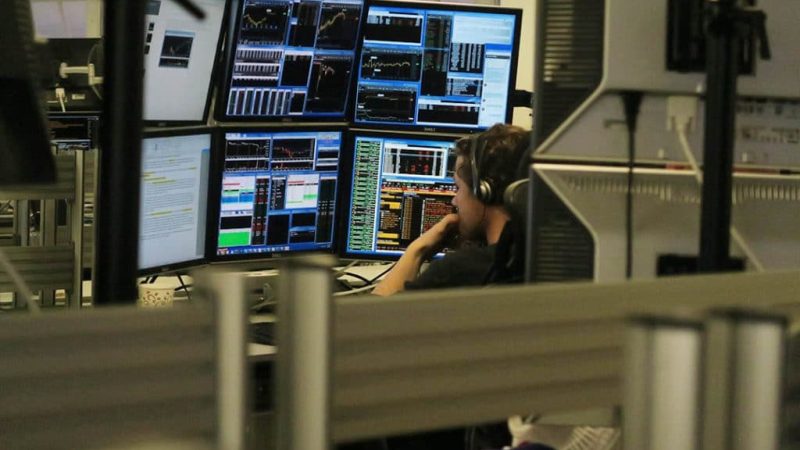In the fast-paced world of financial markets, being a competitive trader means more than just buying and selling assets—it requires strategy, discipline, and a deep understanding of market dynamics. Whether you’re trading stocks, forex, cryptocurrencies, or commodities, standing out in this highly competitive space takes dedication and expertise.
This article delves into what it means to be a competitive trader, the essential skills you need, and proven strategies to gain an edge in the markets.
What Is a Competitive Trader?
A competitive trader is someone who actively participates in financial markets with the goal of outperforming others and achieving consistent profits. These traders often employ advanced strategies, leverage cutting-edge technology, and continuously adapt to market conditions to stay ahead.
Key Traits of a Competitive Trader
- Market Knowledge: Deep understanding of financial instruments and market behavior.
- Discipline: Adherence to trading plans and risk management strategies.
- Adaptability: Ability to adjust strategies in response to changing market conditions.
- Technological Savvy: Use of trading platforms, analytics, and automation tools.
Types of Competitive Traders
Competitive traders can operate in various financial markets, each with unique characteristics:
Stock Traders
- Focus on equity markets, buying and selling shares of companies.
- Common strategies include day trading, swing trading, and value investing.
Forex Traders
- Trade currency pairs in the foreign exchange market.
- Leverage market volatility and geopolitical events to capitalize on price fluctuations.
Cryptocurrency Traders
- Engage in the highly volatile crypto market, trading assets like Bitcoin, Ethereum, and altcoins.
- Use techniques like scalping, arbitrage, and trend analysis.
Commodity Traders
- Trade physical goods like gold, oil, and agricultural products.
- Utilize futures contracts and options to hedge risks or speculate on price movements.
Skills Required to Be a Competitive Trader
To succeed as a competitive trader, you need more than just market knowledge. Here are the key skills to develop:
Analytical Thinking
- Evaluate market trends, charts, and indicators to make informed decisions.
Risk Management
- Limit losses with stop-loss orders and position sizing.
- Maintain a diversified portfolio to reduce exposure to market volatility.
Emotional Control
- Avoid impulsive decisions driven by fear or greed.
- Stick to your trading plan, even during high-pressure situations.
Technical Skills
- Master technical analysis tools like moving averages, RSI, and Fibonacci retracements.
- Use advanced trading platforms and automation tools to optimize performance.
Continuous Learning
- Stay updated on market news, economic reports, and emerging trends.
- Take courses or attend webinars to refine your trading techniques.
Proven Strategies for Competitive Traders
Competitive traders rely on well-tested strategies to maximize profits and minimize risks. Here are some popular ones:
Scalping
- Make quick trades to capture small price movements.
- Requires high-speed execution and excellent market timing.
Swing Trading
- Hold positions for several days or weeks to profit from medium-term trends.
- Combines technical and fundamental analysis for better accuracy.
Day Trading
- Open and close trades within a single trading session.
- Focuses on high liquidity markets and avoids overnight risks.
Trend Following
- Identify and follow market trends using indicators like moving averages.
- Works well in markets with clear directional movements.
Arbitrage
- Exploit price differences between markets or instruments for risk-free profits.
- Common in forex and cryptocurrency trading.
Tools and Resources for Competitive Traders
Trading Platforms
- Popular platforms: MetaTrader 4/5, Thinkorswim, TradingView.
- Offer advanced charting tools, order types, and analytics.
News and Analytics
- Stay informed with Bloomberg, Reuters, or CNBC.
- Use data analytics platforms like Finviz or CoinMarketCap for detailed insights.
Automation Tools
- Employ algorithmic trading bots for faster execution.
- Use automated alerts for price triggers and technical patterns.
Risk Management Tools
- Use position sizing calculators to determine trade sizes.
- Employ portfolio trackers like Personal Capital or Ziggma.
Challenges of Competitive Trading
Being a competitive trader is rewarding but comes with challenges:
Market Volatility
- Sudden price swings can lead to significant losses if not managed properly.
Emotional Stress
- Constant decision-making and market monitoring can lead to burnout.
Overtrading
- Excessive trading in pursuit of profits often leads to reduced returns and increased risk.
Information Overload
- Sorting through vast amounts of market data can be overwhelming.
Tips to Succeed as a Competitive Trader
- Start with a Plan: Define your goals, risk tolerance, and trading strategy before entering the market.
- Keep a Trading Journal: Record your trades to analyze what works and what doesn’t.
- Stay Disciplined: Stick to your strategy and avoid chasing losses.
- Diversify: Spread your investments across multiple assets to minimize risk.
- Leverage Education: Read books, take courses, and learn from experienced traders.
Conclusion
Becoming a competitive trader requires a combination of skill, discipline, and strategic planning. By mastering technical and fundamental analysis, leveraging the right tools, and adopting proven trading strategies, you can stay ahead in the dynamic world of financial markets.
Whether you’re just starting or looking to refine your skills, continuous learning and adaptability are key to long-term success.
Ready to elevate your trading game? Start implementing these strategies today and take your trading to the next level!
FAQs
1. What is a competitive trader?
A competitive trader is someone who actively trades financial assets with the goal of outperforming the market through strategy, discipline, and adaptability.
2. Can anyone become a competitive trader?
Yes, with the right education, tools, and mindset, anyone can develop the skills needed to become a competitive trader.
3. How much capital do I need to start trading?
The amount varies depending on the market, but many platforms allow you to start with as little as $100.
4. Are trading bots helpful for competitive traders?
Yes, trading bots can enhance speed and efficiency but should be used alongside manual strategies for optimal results.
5. How can I manage risk as a trader?
Use stop-loss orders, diversify your portfolio, and avoid overleveraging to minimize risk.
Also read: Moonchild Menu: 10 Celestial Dishes to Savor









